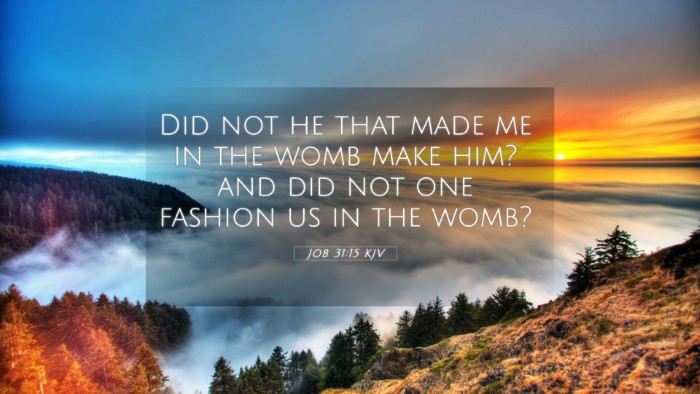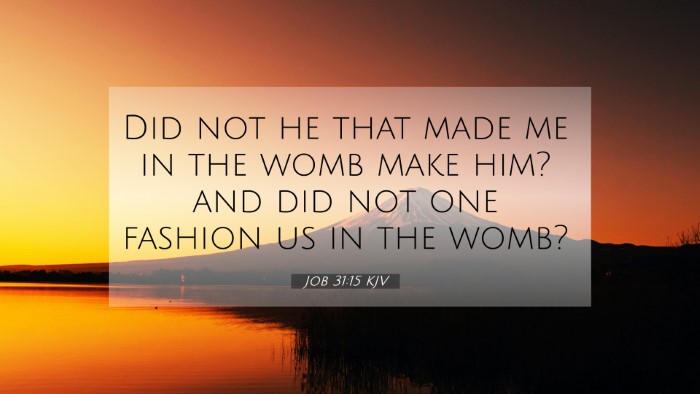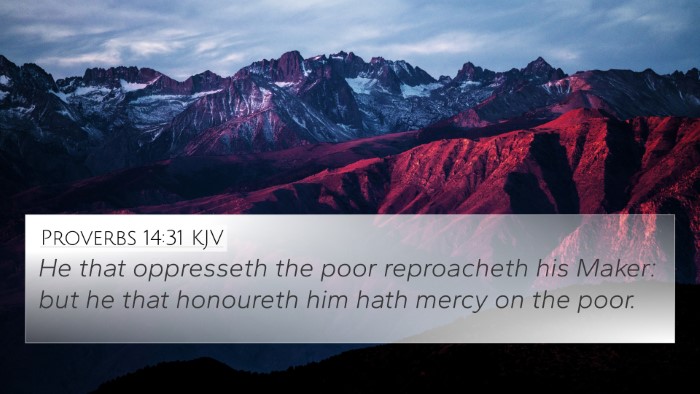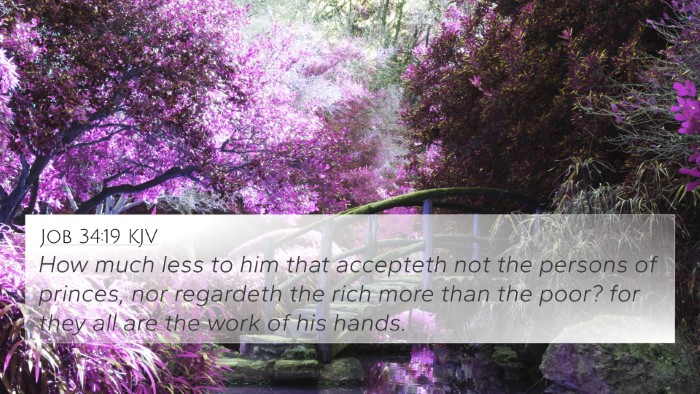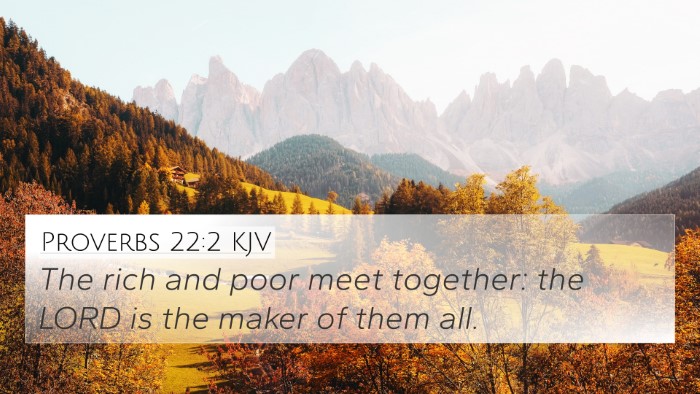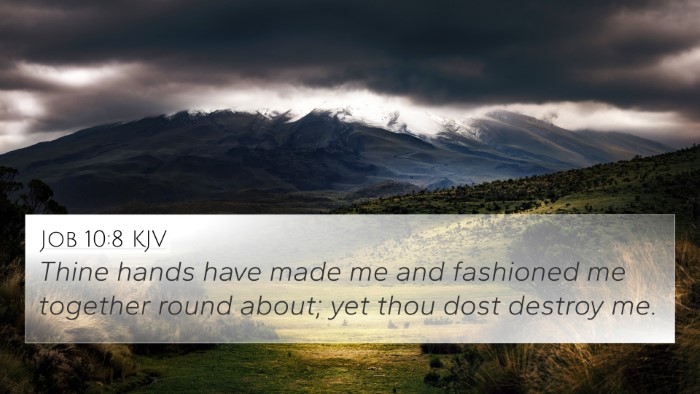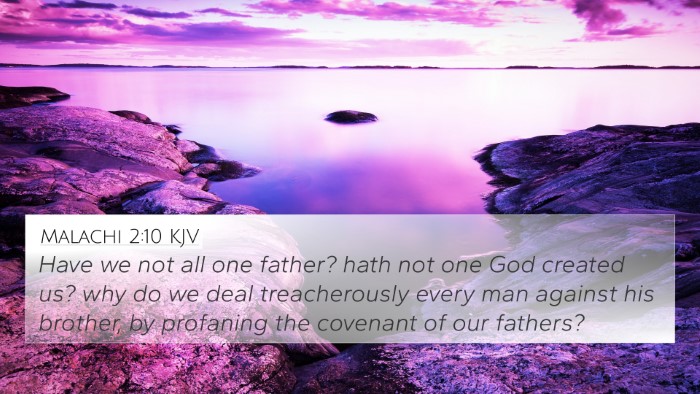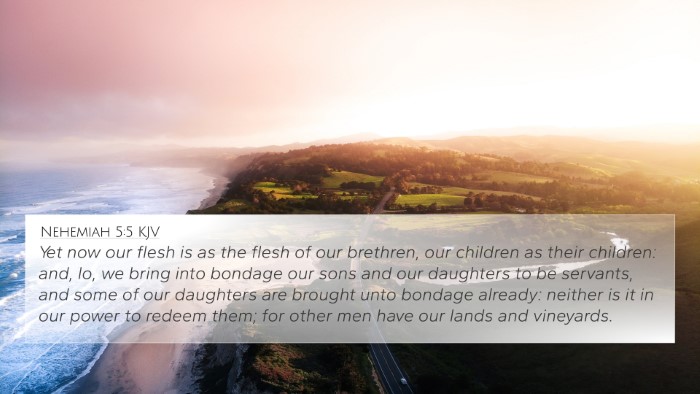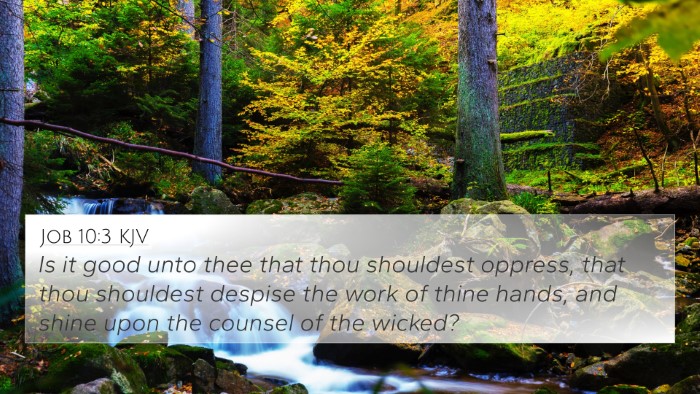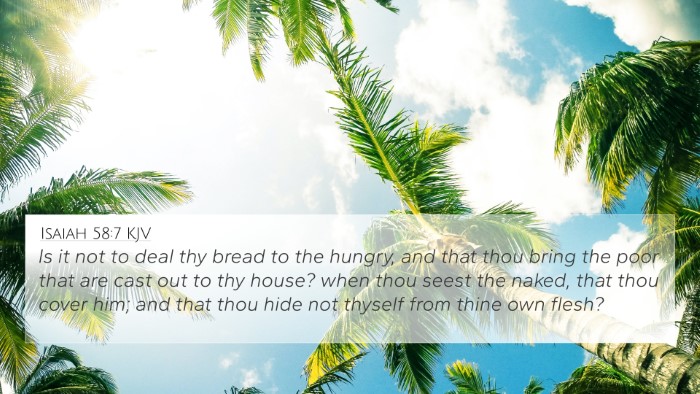Understanding Job 31:15
Job 31:15 states: "Did not he that made me in the womb make him? and did not one fashion us in the womb?" This verse expresses Job's profound awareness of God as the creator of all mankind. Job draws a parallel between himself and others, asserting that all humans, regardless of their circumstances or status, are equally crafted by God.
Verse Meaning and Context
This verse appears within Job’s discourse, where he defends his integrity against the accusations of his friends. Job emphasizes the universality of God's creation, suggesting that every person is created by the same divine hand, thereby challenging any notion of superiority based on moral standing or plight.
Key Insights from Commentaries
- Matthew Henry: Matthew Henry highlights the equality of humans before God, pointing out that since all are made by the same Creator, there should exist a mutual respect among humanity. Job's appeal suggests that distinctions of righteousness are irrelevant when considering God’s sovereignty in creation.
- Albert Barnes: Barnes expounds on the concept of divine craftsmanship, indicating that Job uses this rhetorical question to affirm God's impartiality. He stresses that whether prosperous or suffering, every individual shares the same divine origin.
- Adam Clarke: Clarke emphasizes Job's desire to emphasize human dignity derived from God as the creator. The unity of creation underscores a moral obligation to treat others with compassion and empathy, reflecting the Creator's intent.
Bible Verse Connections
Job 31:15 resonates with various Bible verses that share similar themes of creation, equality, and divine authority:
- Genesis 1:27: "So God created mankind in his own image, in the image of God he created them; male and female he created them." - This verse underscores the divine image in all humans.
- Psalm 139:13-14: "For you created my inmost being; you knit me together in my mother’s womb. I praise you because I am fearfully and wonderfully made." - A reflection on God's intimate role in creation.
- Acts 17:26: "From one man he made all the nations, that they should inhabit the whole earth; and he marked out their appointed times in history and the boundaries of their lands." - Illustrates the unity of all humanity in God’s plan.
- Romans 2:11: "For God does not show favoritism." - Affirms the impartiality of God towards all people.
- Galatians 3:28: "There is neither Jew nor Gentile, neither slave nor free, nor is there male and female, for you are all one in Christ Jesus." - Highlights the equality and unity in Christ.
- 1 Corinthians 12:12-13: “Just as a body, though one, has many parts, but all its many parts form one body, so it is with Christ.” - This speaks to the diverse yet unified nature of humanity in Christ.
- Job 10:8-9: "Your hands shaped and made me. Will you now turn and destroy me? Remember that you molded me like clay. Will you now turn me to dust again?" - Job recognizing God’s creative power and human fragility.
- Malachi 2:10: "Do we not all have one Father? Did not one God create us? Why then are we faithless to one another?" - Reflects on the shared parentage from God.
- James 3:9: "With the tongue, we praise our Lord and Father, and with it, we curse human beings, who have been made in God’s likeness." - Implicates the inherent dignity of all humans due to their creation in God's likeness.
Thematic Bible Verse Connections
Understanding Job 31:15 also opens avenues for thematic exploration within scripture. Here are some connecting themes:
- Divine Creation: The idea that God intricately designs each person.
- Human Value: Every individual has inherent worth because of their creation by God.
- Equality Before God: No person is superior or inferior in the eyes of the Creator.
- Compassion for Others: If we are all made by the same Creator, we are called to love one another.
- Moral Responsibility: Creation entails a responsibility towards one another based on shared origins.
Tools for Bible Cross-Referencing
To further explore the connections between Bible verses, several tools can aid in cross-referencing:
- Bible Concordance: A comprehensive index of words in the Bible to find related verses quickly.
- Bible Cross-Reference Guide: Specific guides that explain connections between verses.
- Cross-Reference Bible Study: Methods and practices for studying Bible verses in relationship to each other.
- Bible Chain References: A method of linking verses that focus on a particular theme or topic.
Conclusion
In summary, Job 31:15 serves as a vital reminder of God’s role as Creator and our consequent responsibilities to respect and love one another. The connections drawn through cross-referencing with other scriptures deepen our understanding and highlight the theme of unity in the divine act of creation.

